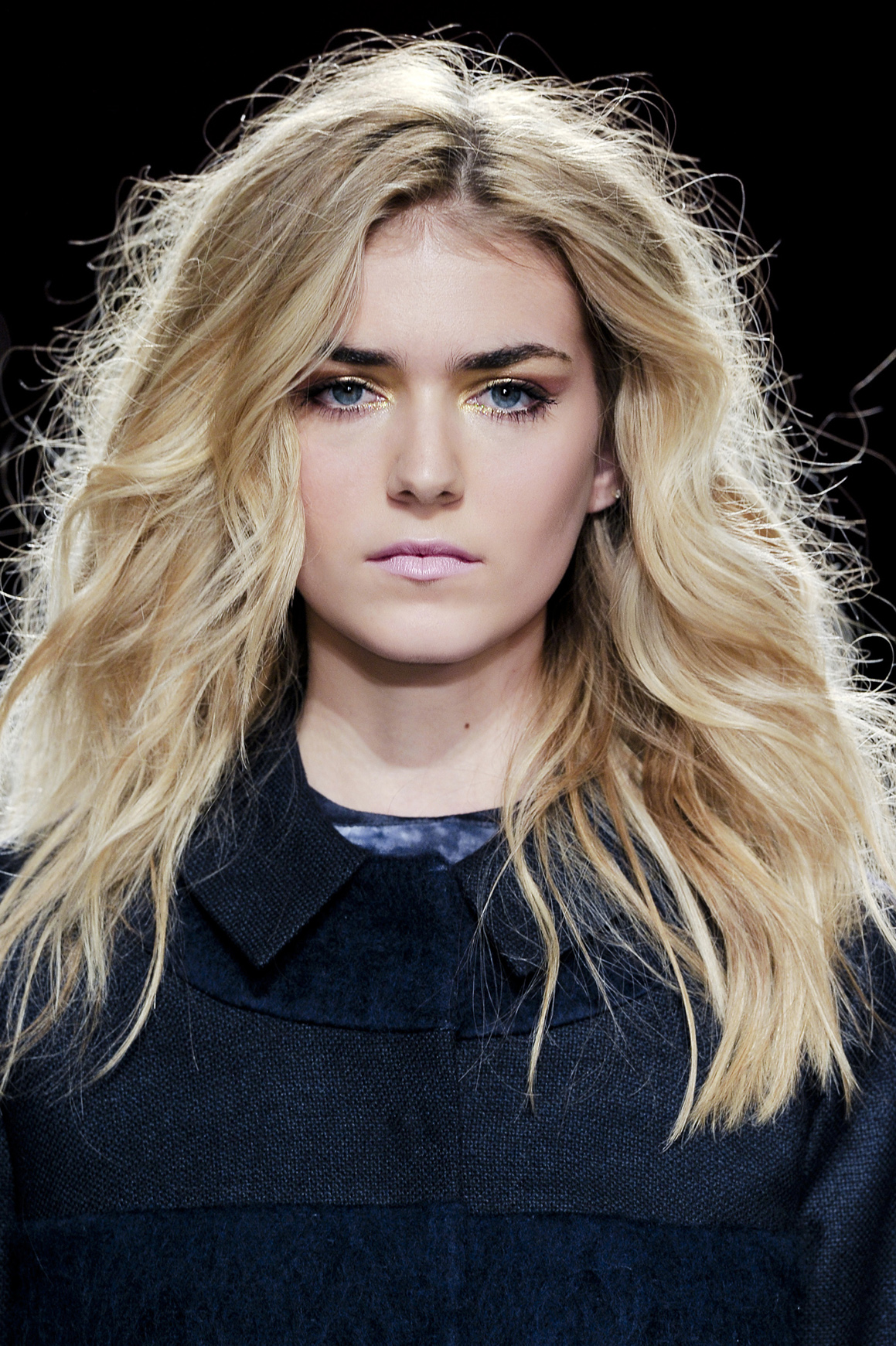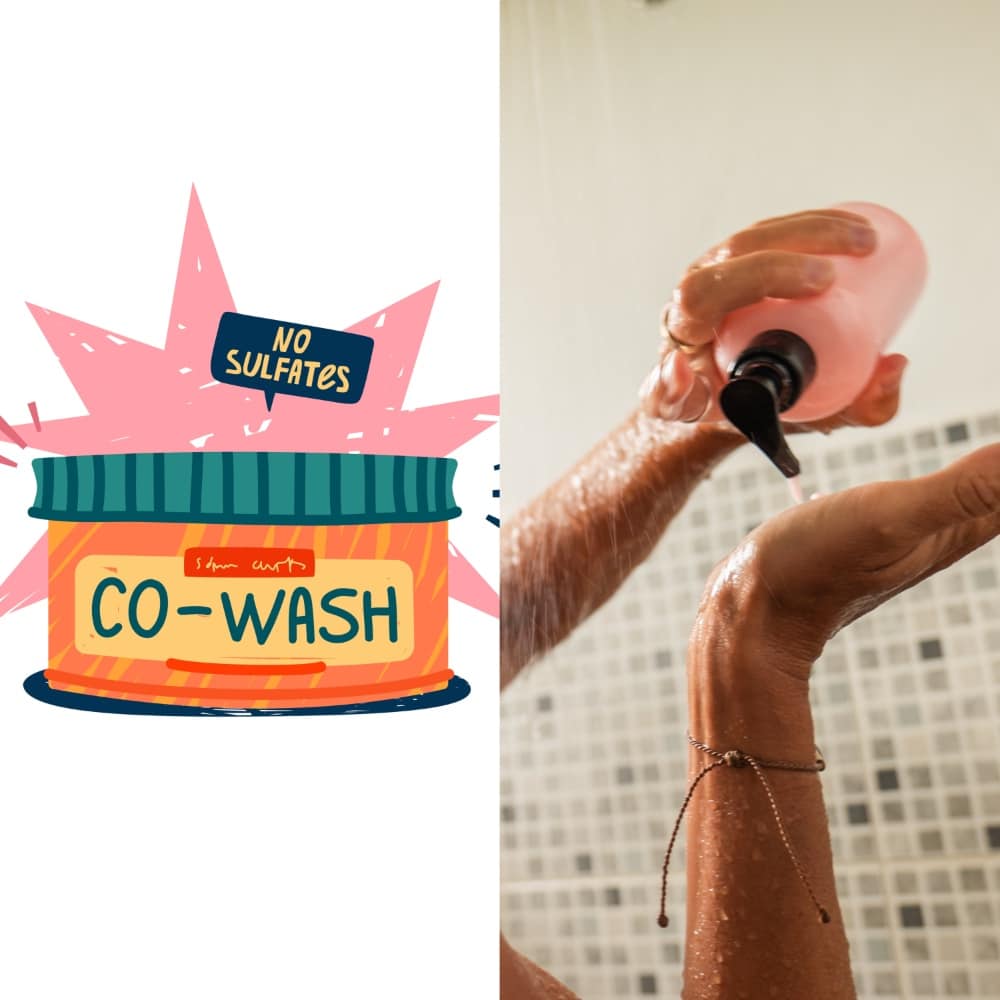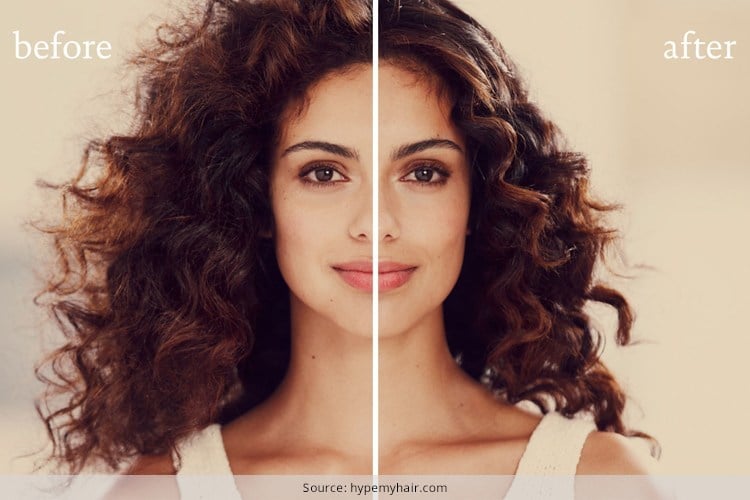Table Of Content

Since co-washing cuts down on your hair-washing days, it helps improve the overall health of your hair. As for how often you should co-wash, we recommend taking a break from time to time, and switching back to your regular shampoo for a deeper, more purifying cleanse. Do this every two to three washes to rebalance your scalp and enjoy the intensely nourishing benefits of a cleansing conditioner the rest of the time. Look for products explicitly labeled as cleansing conditioners or co-washes, such as Hairstory's New Wash. "This product is sulfate free, cleanses the hair and scalp without stripping all your natural oils, gives shine to the driest of hair, and adds great moisture," lauds Bullock. "I also love that this product is great at detangling the hair."
Hair Mask for Hair Growth: What to Use to Promote Healthy Hair Growth
It’s best to evaluate all the facts so that you can make an informed decision on whether or not to co-wash. Has soft and flexible silicone bristles that ensure gentle exfoliation and stimulation of the scalp. Make sure your hair is thoroughly soaked to ensure the co-wash can spread easily throughout your hair.
Low-Poo Shampoo vs. Co-Wash
They’re more lightweight than conditioners, and contain ingredients that can improve the cleansing process, making them a more practical choice for those who want to try co-washing. Also, co-washing conditioners can help prevent product buildup and leave your curls feeling refreshed. Choosing to co-wash between shampoos can restore moisture to curly hair, which needs a lot of hydration to look its best. Traditional shampoos can be problematic for curly hairstyles because they often contain harsh sulfates which can strip your hair of important natural oils, leaving it brittle, dry, and prone to breakage and frizz.
Co-Washing Hair Guide: Pros, Cons & How-To
For those who aren’t sure, co-washing is simply the act of using conditioner to wash your hair instead of typical shampoo. You can use a rinse-out conditioner or a commercial co-wash, which contains gentle surfactants to cleanse your hair more deeply than conditioner can. Coily hair has an elliptical shaft, with tight curls or a Z-shaped pattern. However, it often responds well to less frequent washing, which gives natural oils a chance to coat the hair. Shampoos aim to remove oils and buildup from the hair and scalp, while conditioners typically add moisture and smooth the hair cuticle.

Generally, it can be beneficial for those with thicker or drier hair to choose thicker and more intensely hydrating cowash products. Those with finer hair may prefer a lighter conditioner and more frequent shampooing. The term “cowashing” is a combination of the words “conditioner” and “washing.” It involves using a conditioner to cleanse the hair, rather than a shampoo.
Act & Acre Conditioning Hair Mask
For the best effect, do the final rinse on your hair with cool water to close the hair cuticles and keep your hair shiny. Wavy, curly, coiled, kinky and tightly coiled hair types can all benefit from co-washing and other non-shampoo options. For these hair types, frequent shampooing can dry out hair and even increase tangles and single strand knots. Co-washes are better suited for those with more textured, curly, or thick hair types. "Any hair type can co-wash, but we do not recommend those with fine-textured or thin hair to co-wash, as it can easily weigh the hair down," says Merian Odesho, founder and formulator of Bounce Curl.
What Is Co-Washing And Can It Damage Your Hair? - ELLE UK
What Is Co-Washing And Can It Damage Your Hair?.
Posted: Wed, 12 Aug 2020 07:00:00 GMT [source]
Here’s the rest of Richards’ breakdown of what’s good and bad for dry hair. Finding the culprit behind your dry hair may take some elbow grease — there are plenty of causes to consider. She has a Master's degree in International Fashion Retailing & Multi-channel Marketing. Trends may come and go, but with the right care beautifully defined curls are forever. In order to clean your hair without making it greasy or weighed down, it's important to look for a light conditioner—or a conditioner made specifically for co-washing, as mentioned. You can look for a two-in-one co-wash conditioner such as Hairstory's New Wash.
Carol’s Daughter Hair Milk Curl Cleansing Conditioner
There are no standard, scientific guidelines for choosing the right way to wash hair. The best option can depend on a person’s hair type, how it responds to their regimen, cultural norms, and personal preference. While it is possible to co-wash with a regular conditioner, it’s best to co-wash with a product specifically formulated for that purpose.
A co-wash is “also an excellent choice for anyone seeking to tame or de-frizz their hair after cleansing,” says DeBolt. Conversely, people with fine hair textures or those who are prone to an oily scalp should avoid co-washes, according to Hardges. That’s because the oils that make them so nourishing may be too heavy for fine hair, weighing it down. Co-washing hair is a method of washing your hair using only conditioner instead of shampoo.
Well, when you use traditional shampoos and conditioners to wash textured, curly, coily, or afro hair these ingredients can sap the natural moisture. Using a Grow Gorgeous shampoo and conditioner duo to combat this would be step one for most people. Co-washing can be good for your hair, particularly if you have curly hair.
Most conditioners contain trace amounts of detergents called cationic surfactants, or "quats" for short. This creamy yet light conditioner is loved by people with all hair types. It also includes glycerin to lock in moisture, jojoba oil to make strands silky, and the natural floral-citrusy fragrance leaves your hair smelling amazing.
If you have textured hair that needs extra moisture and tends to get stripped by regular shampoos, you might want to consider cleansing your hair with conditioner instead. Co-washing, or conditioner washing, is a recommended cleansing alternative to harsh shampoos because it cleanses hair while maintaining the natural oils that keep hair hydrated. "Co-washing hair is a great alternative to shampoo for hair that’s porous and loses moisture quickly," Sarah Sango, a R&D Stylist at Lush, says. If you work a wash day into your hair care routine (meaning, you still shampoo occasionally, whether that's once every few days, once a week, or once every month), then you can co-wash with your usual conditioner.
As a hair stylist, I recommend that you shampoo your hair anywhere from twice a week to once every two weeks. Therefore, co-washing is a great thing to do in between shampoos, either to restyle your hair or to postpone shampooing for a bit longer. Finally, co-wash products can be helpful for those with dry scalps. Traditional shampoos can be harsh and drying, exacerbating dryness and flakiness. Co-washing, on the other hand, can help soothe and moisturize the scalp, reducing dryness and flakiness over time.
Most formulas on our list are also free of sulfates and silicones. "A co-wash is a conditioner-based product that has a few cleansing surfactant ingredients in it," says Odesho. "It will essentially cleanse and condition the hair." Meant to be used in place of a shampoo, it helps to clarify the hair and scalp in between wash days. "The idea behind co-washing is to prevent over-cleansing the hair," says Shab Reslan, a hair health expert at HairClub. "That also allows your natural scalp oils to remain in place to increase moisture in your hair."



